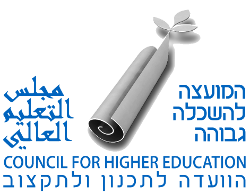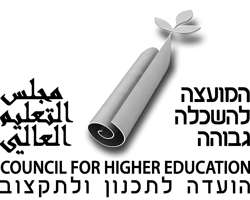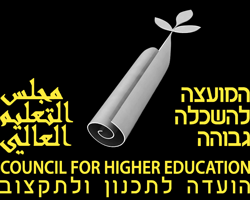Academic Excellence Among Students of Ethiopian Descent
The Planning and Budgeting Committee (PBC) has approved a holistic plan for preventing dropout and increasing the number of people with academic degrees. The plan includes broad support starting at the pre-academic stage and continuing on to bachelor’s degree studies, advanced degree studies, and even the hiring of senior academic staff.
- Preacademic Guidance and Identification – Funding prep courses for psychometric exams and activities whose purpose it is to identify and guide young people who are suitable for academia and to assist in picking a major. All this is done through the PBC’s Hesegim program in towns in the socioeconomic periphery.
- Support Structure for Students Enrolled in the Preacademic Programs – This is a broad support structure that includes, among other things, academic reinforcement, tutoring, psychometric exam preparation, funding for dorms or travel, diagnosis of learning disabilities, and more.
- Support Structure for Bachelor’s Degree Students – This is a broad support structure that includes, among other things, academic reinforcement, learning strategies, tutoring, funding for dorms, travel, diagnosis of learning disabilities, etc.
- Leadership Programs – Intended for students beginning bachelor’s degree programs and master’s degree programs, starting in the 2019/20 academic year.
- A Program for Outstanding University Students at All Degree Levels – Assigning a mentor from among the senior staff who will accompany the outstanding students from the final year of their bachelor’s degree and will guide them on their academic path in preparation for continuing research studies.
- Scholarships for Academic Excellence for Research Based Master’s Degrees – Scholarships for academic excellence in the sum of NIS 41,000 that are intended for the basic needs of scholarship recipients in their second year of master’s degree studies as well as full tuition scholarships for the remaining students in their second year of research-based master’s degree studies.
- Program for Hiring Academic Staff at Academic Institutions – Research and wage budgets for hiring outstanding scientists at institutions of higher education. At the end of the scholarship, the scholarship recipients will be hired by academic institutions on a permanent basis.
Chair of the PBC, Prof. Yaffa Zilbershats: “The PBC has defined making the higher education system accessible to unique populations a central goal in its work plan, with an emphasis on persons of Ethiopian dissent, the ultra-Orthodox, and Arabs. It is our obligation to increase excellence in academia and research but at the same time we must open the doors to a higher education to all social groups and sectors and promote true equality, permitting every student in Israel to realize his or her talents, irrespective of his or her ethnicity or where they live.”
Jajaw Bimro, Member of the Steering Committee for Making Higher Education Accessible to Students of Ethiopian Descent: “Higher education has the power to drive social mobility and lead to the significant changes which we seek in many fields. Obtaining a higher education is not just studying at one institution or another. It is a necessary stage of life today in preparing for tomorrow’s future. We should not fear, but rather praise, those changes that will benefit and advance people of Ethiopian extraction toward independence and success, in academia in particular and in Israeli society in general.”
The Planning and Budgeting Committee (PBC) has recently approved the second stage of the multiyear plan: “To Encourage Academic Excellence and Leadership Among Students of Ethiopian Descent.” The overall program that has been approved thus far, with the total budget of NIS 77 million, is in the spirit of Government Decision number 324 dated July 31, 2015 on the subject of “Government Policy for Advancing the Integration of Israel Citizens of Ethiopian Descent Into Israeli Society.” In the coming months, the third stage of the program will be formulated and presented for approval by the PBC, that is expected to set the total for the multiyear plan at the sum of NIS 95 million.
The program is based on the recommendations by the Steering Committee for Making Higher Education Accessible to Students of Ethiopian Descent headed by PBC member, Prof. Yossi Schein. During the course of its work, the Steering Committee mapped out the primary obstacles to integration of persons of Ethiopian descent into the higher education system. These obstacles include, among other things, lack of preacademic information, advisement, and guidance, a low percentage of holders of matriculation certificates that meet the threshold requirements set by the universities, entrance exams, high dropout rates between first and second year, and the dearth of variety of areas of study.
The program approved by the PBC is a holistic program that includes broad support starting at the preacademic stage and continuing on to bachelor’s degree studies, advanced degree studies, and even the hiring of senior academic staff (some of the plans were approved at the start of the previous academic year). We note that the multiyear plan defined a goal to increase the number of students of Ethiopian extraction enrolled in bachelor’s degree programs such that their percentage of students will be approximately 1.7% by the end of the multiyear plan, commensurate with their percentage of the population. This goal means an increase of approximately 40% of the number of bachelor’s degree students, from 2,500 at the start of the five-year period to approximately 3,500 within five years.
Preacademic Guidance and Identification:
With the understanding that the information accessibility crossroad is critical for young persons of Ethiopian extraction, some of whom are the first generation to attend higher education, emphasis is placed on active and early identification, at the end of military and/or national and/or civil service, of young people who are potential candidates for higher education.
- Reinforcement of Coordinators for the “Hesegim” Program until the end of the five-year period in the 10 leading towns in terms of the size of the population of persons of Ethiopian extraction. The coordinators will make information about higher education accessible in order to find youth and guide them to academia while assisting them in choosing their field of studies.
- Financing Psychometric Prep Courses Vouchers will be issued to young persons of Ethiopian extraction who complete the preacademic studies guidance program with the Hesegim Program’s coordinators. The PBC has provided young persons of Ethiopian extraction with subsidies for psychometric courses that are considered nonacademic courses for a number of years. This has been done in the framework of the support network for persons of Ethiopian extraction in preparatory programs. This is the first time the PBC has approved a significant expansion in this field, including by means of an additional PBC platform, the “Hesegim” Program in the socioeconomic and geographical periphery.
According to the Central Bureau for Statistics data, the average psychometric score among youth of Ethiopian extraction is approximately 451 points, approximately 100 points lower than the national average. This stems from, among other things, the high costs of preparatory courses (thousands of shekels per student) and the difficulty youth of Ethiopian extraction have in paying for such courses.
Academic and Financial Support Structure for Students in Preacademic Preparatory Programs and Bachelor’s Degree Students
- The PBC funds a support structure for students in preparatory programs and bachelor’s degree students who are of Ethiopian extraction, similar to comparable PBC programs for other populations at institutions financed by the PBC. This is in order to reduce dropout by means of academic reinforcement, learning strategies, tutoring, entry exam preparation, paying for dormitories and travel, diagnosing learning disabilities, and more.
Student Leadership Program:
- Enrollment in Existing Student Leadership Programs Starting in the coming academic year (2019/20), this will be done on a wide scale with the goal of increasing the percentage of students of Ethiopian extraction in these programs to approximately 20% of all students participating.
Program for Outstanding Students:
Emphasis will be placed on academic continuity that identifies outstanding students during bachelor’s degree studies, follows them through research-based master’s degree studies or a direct doctoral track, through postdoctoral work, and including appointment of academic staff at institutions of higher education.
- Academic Mentoring – The Elite Program’s objective is to increase the potential for outstanding excellence among excelling students by providing mentoring by senior academic staff at the universities who will accompany and guide them on the academic path toward continuing research-based studies and integration into the research community.
- Merit Scholarships for Research-Based Master’s Degrees for Students of Ethiopian Extraction – Merit scholarships in the sum of NIS 41,000 that are intended for the basic needs of merit scholarship recipients in their second year of master’s degree studies as well as full tuition scholarships for the remaining students in their second year of research-based master’s degree studies.
Plan to Hire Academic Staff of Ethiopian Extraction and Institutions of Higher Education
- Outstanding scientists of Ethiopian extraction will receive grants in the sum of hundreds of thousands of shekels (over the course of 3 years) to fund research and pay their salaries at universities and colleges, similar to parallel PBC programs for additional populations (Alon grants, Maof grants). According to the plan, institutes that hire scientists of Ethiopian extraction will commit to hire the grant recipients on a permanent basis at the institution at the end of the grant period.


